Contents
Grapes are very fond of warm climates. This plant is poorly adapted to cold regions. Its upper part does not tolerate even minor temperature fluctuations. Frost at -1°C can have a very bad effect on the further growth of grapes. But there are also cold-resistant varieties that may not suffer even in very severe frosts. But they also need proper care and shelter. In this article, we will look at how to shelter grapes for the winter in Siberia.
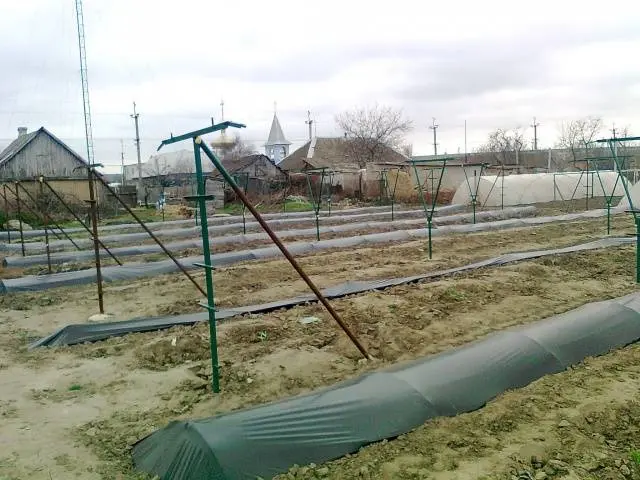
Why you need shelter
Cold-resistant grape varieties, whose buds are in a dormant period, can endure quite severe frost (down to -30 ° C). But even such plants are very sensitive to low temperatures in the spring, when frosts return. At this time, blossoming buds need warmth and a comfortable temperature regime. No less sensitive to frost are young bushes that have not yet had time to harden.
Grapes are sensitive not only to frost, but also to temperature fluctuations. When it gets a little warmer outside, the vine relaxes and weakens the hardening accordingly. At this time, even a slight decrease in temperature can destroy a weak plant.
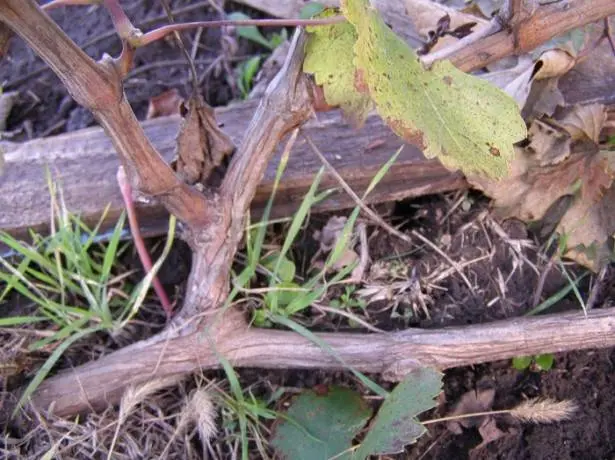
If the soil freezes to -20 ° C, then the plant may simply not survive. This applies even to the varieties most adapted to Siberian frosts. Therefore, it is very important to protect the grapes from such dangers. To do this, experienced gardeners cover their bushes for the winter.
When to cover grapes in Siberia
It is necessary to build a shelter for grapes as soon as frosts begin. Usually this time comes in the last week of September or at the beginning of October. Bushes need to provide not only reliable protection against frost, but also the necessary hardening. For this, grapes are provided with temporary shelter:
- The vine must be pruned.
- After that, they dig a trench.
- Then the soil is mulched in the trench.
- All shoots are tied and laid on the bottom.
- From above, the trench is covered with polyethylene or other covering material.
Such a shelter will not allow the plant to suffer from frost. In addition, the grapes will be able to safely accumulate the necessary sugar during wintering and undergo hardening. For this, the plant will need 1 or 1,5 months.
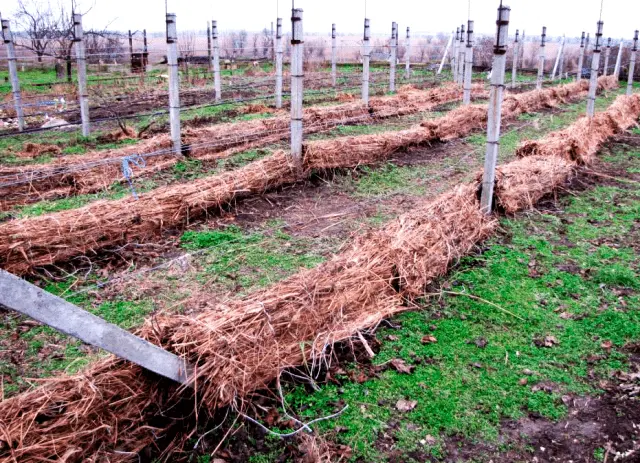
How to cover bushes for the winter
To protect grapes from frost in winter, you can use several types of material. The root system is best protected by mulch. For this, needles, peat and sawdust are used. Some also use grain husks.
To insulate the ground, a wooden shield, cardboard sheet, ordinary earth or reed mats are also perfect. Now on sale there are many other equally suitable materials for thermal insulation. If you need to protect the plant from melt water in the spring or just from moisture, you can use roofing material or ordinary polyethylene.
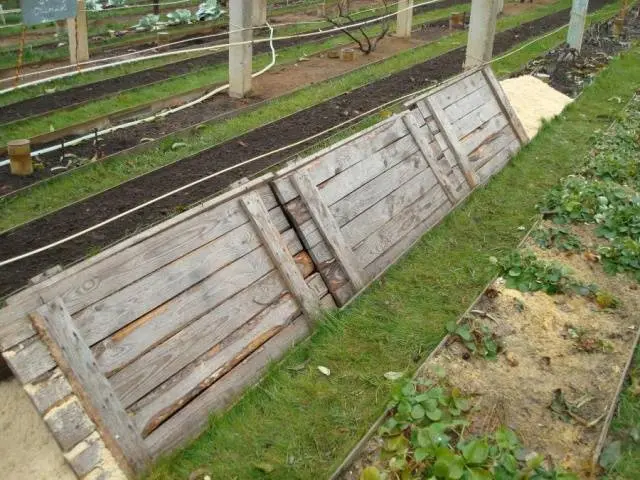
How to cover grapes for the winter
In Siberia, there are 2 main ways to cover bushes for the winter. The first one is called “dry”. This method allows you to create the desired microclimate in which the plant will feel comfortable. In addition, in this case, the risk of underheating formed kidneys is minimized.
The connected vine must be wrapped with polyethylene or roofing material. Due to this, it will not come into contact with the ground. Then the prepared vine is laid on the bottom of the trench and fixed with special metal brackets. You can also use wooden hooks.
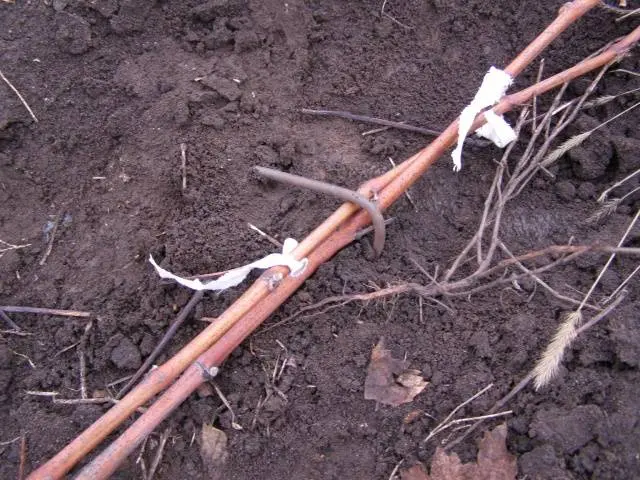
Arcs must be installed on top of the trench. Then a special corrugated cardboard is laid on them. From above, this material is covered with polyethylene to further protect the structure from moisture. Instead of corrugated cardboard, you can put wooden shields.
The second method is used more often, as it is easier and does not require specially prepared materials. In this case, the bushes are covered with soil and snow. This method has performed very well. Plants remain in excellent condition until spring. To do this, a trench with branches must be covered with soil at least 30 cm high.
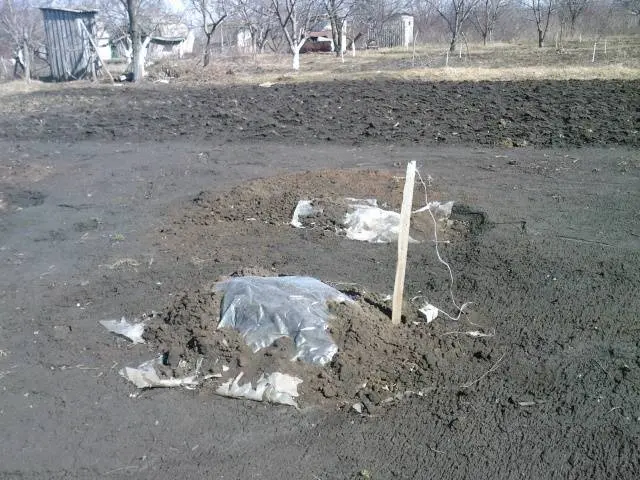
So that the plant does not prop up during the winter, you must first treat the bush with a solution of lime, dry it, and only then cover it with polyethylene. Any material is spread on top of the ground that will not allow the liquid to seep inside. From above, the shelter is covered with the remains of plants and branches.
You can open the grapes only in April, if the frost has completely passed. It needs to be dried and only laid again in a trench. When it finally warms up, it will be possible to get the vine from the trench and attach it to the trellis. This must be done carefully, as the kidneys at this stage are very tender.
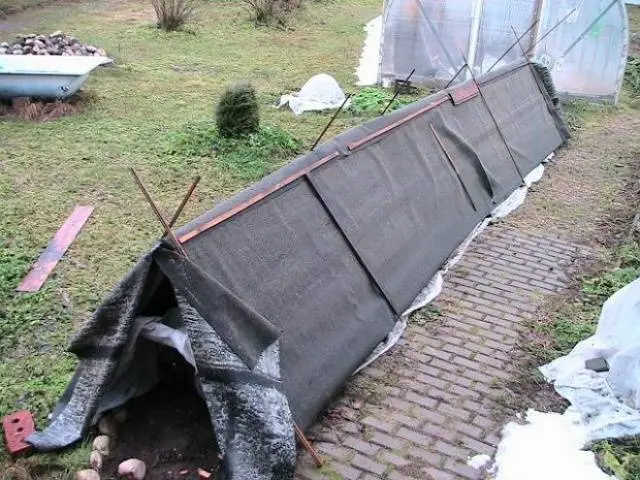
Conclusion
Now you can properly prepare your grapes for winter. And no Siberian frost is terrible for the future harvest.









